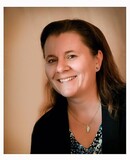dr Kinga Strycharz-Bogacz – a scientific profile
Ethnomusicologist, assistant professor in the Department of Ethnomusicology and Hymnology, Institute of Arts Studies in the Faculty of Humanities, The John Paul II Catholic University of Lublin (KUL).
After graduating from Karol Lipinski General Primary and Secondary Music School in Lublin in the piano class of Teresa Księska-Falger, she continued her studies at the Institute of Musicology at KUL, where she obtained her MA degree under the tutelage of Prof. Dr. habil. Bolesław Bartkowski, with defending her MA thesis A circle form in Polish folk songs. While studying and after her graduation she sang in the Choir of KUL conducted by professor Kazimierz Górski. She also cooperated with Lublin Cathedral Choir and with Choir and Orchestra “Cantate Deo” at General Primary and Secondary Music School in Lublin. In the years 1994-1998 she worked as a music editor in the Catholic Radio Lublin, being responsible for the music broadcasts: “Music Always Alive” and “Oldies Rediscovered"’; this involvement resulted in producing several hundred original music broadcasts. In the years 1994-2013 she was employed in the International Relations Office of KUL, meanwhile promoted to the position of specialist in 2005. After her doctoral studies, in 2012 she defended her PhD based on the thesis Folk Passion and Easter Singing in the music tradition of Lesser Poland and Subcarpathian region, supervised by Dr. habil. Antoni Zoła, associate professor of KUL. Since 2012 she had been employed as university assistant and since 2015 she has been an assistant professor at the Department of Ethnomusicology and Hymnology of KUL (at present part of the Institute of Arts Studies). Her research interest includes living tradition of religious singing in Poland which is largely based on the vast collection of empirical phonic recordings collected in the Archive of Music Religious Folklore at the Department of Ethnomusicology and Hymnology of KUL as well as other documented historical sources. Her work is important for multidimensional research on the Polish religious song in the context of mutual connections between ethnomusicology and hymnology. In her studies she focuses on specific genres and regional characteristics of folk religious singing, on its social and cultural conditions, and on the folk religious and music tradition as a culture-forming factor. She takes part in various academic national and international conferences where she presents her scientific findings. She actively cooperates with other scientific centres in implementing many research projects and grants referring to traditional music culture, including the Polish Academy of Sciences in “Traditional Polish Music the Phonographic Heritage. The Present State, Preservation and Distribution and Polish Song and Folk Music. Sources and Materials. Podlasie, Kurpie. Continuation”. Her interests also involve interdisciplinary projects. She also serves as a judge at festivals of choral and traditional music. She is the head of the review board of the Polish Ethnomusicological Seminar as well as its member; she also belongs to the Polish Ethnological Society, is a member of the scientific board of the “Folk Magazine” (“Pismo Folkowe”), finally, she is a member of the Society of Polish Church Musicians (Stowarzyszenie Polskich Muzyków Kościelnych). In 2016 she received Silver Medal for long-term service from the President the Republic of Poland. In 2020 she was honoured with the Medal of Recognition by the Mayor of Lublin, Krzysztof Żuk, in acknowledgement for her significant achievements in her didactic and scientific work and in recognition for her contribution in the development of Lublin Higher Education and in the promoting culture among Lublin academic society.
In the years 2002-2008 doctor Kinga Strycharz-Bogacz was the musical director of the ITP Theatre, with which she put on five original musicals, six Christmas etudes, as well as the music-and-art show Papal Stories (Opowieści papieskie) and ITP Concert. She is the author of some musical arrangements in these plays. What is more, together with the ITP Theatre she carried out two projects within the 3rd and the 4th Lublin Festival of Science.
Since 1993 she has been conducting the Academic Pastoral Ministry Choir of KUL (Chór DA KUL), which has been providing religious music during numerous liturgical celebrations, also including those connected with academic pastoral ministry activities (the Paschal Triduum, Pentecost Eve, mission masses, retreats, academic pilgrimages to Jasna Góra Monastery, visitation of the copy of Our Lady of Jasna Góra, Sedes Sapientiae). The Choir performs at various occasions, (among others: the concert of African music accompanying the conference “Nature- Culture-Gospel” or the concert inaugurating the beginning of the academic year in the Academy of Future in Lublin, jubilee concerts for the 60th and 70th anniversary of the Academic Pastoral Ministry of KUL, Christmas carols concerts, and also a Christmas carols concert performed with Trio Hualdo Rico within the 5th edition of the National Project – On Wassailing (PoKolędzie) – carried out by the Centre for the Thought of John Paul II. The Choir repertoire comprises compositions from the Middle Ages to contemporary pieces of Polish and foreign composers as well as Taizé canons and Negro spirituals music. The fruitful cooperation of the Academic Pastoral Ministry and the Choir resulted in acquiring a completely new repertoire – traditional African songs in the native languages: Chichewa, Swahili and Zulu. The choir group released two CD albums: The Choir of the Academic Pastoral Ministry of John Paul II Catholic University of Lublin (The Choir of DA KUL) which summarised their current oeuvre (2004) and Karibuni wote with traditional African songs to commemorate the 20th anniversary of the presence of the Missionary Sisters of Our Lady of Africa (the White Sisters) in Poland (2011). Being the conductor of the Choir, she received the Jubilee Medal for the university’s centenary from the Rector of KUL in recognition of her artistic and cultural work (2018).

